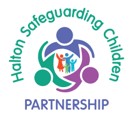Private Fostering
Private fostering is when a child or young person under 16 years old (or 18 if they have a disability) is looked after for a period of 28 days or more by someone who is not a close relative, guardian, or person with parental responsibility.
A relative is defined in the Children Act 1989 as a grandparent, uncle or aunt (whether by full-blood, half-blood or by marriage or civil partnership), sibling or stepparent.
Typical examples of private fostering arrangements are:
- Children sent from abroad to stay with another family to improve their educational opportunities or health care.
- Asylum-seeking and refugee children.
- Teenagers who, having broken ties with their parents, are staying in short–term arrangements with friends or other non-relatives.
- Language students living with host families.
- Children living with a friend’s family because their parents’ study or work involves unsociable hours, which make it difficult to use ordinary day care of after-school care.
- Children staying with another family because their parents have separated or divorced.
If you are unsure if your situation is private fostering contact 0151 907 8305 or email contactandreferralteam@halton.gov.uk to discuss.
There are a variety of reasons why a parent may be unable to care for their own child on a short or long-term basis and a private fostering arrangement can be a positive response from friends and the local community to a family in need of support.
However, any child separated from their parents is potentially vulnerable and the local authority has a responsibility to make sure the alternative care they receive is suitable.
By law, the local authority must be told about all private fostering situations. The child’s parents, private foster carers and anyone else involved in the arrangement are legally required to inform the council immediately. Professionals, such as teachers, doctors or religious leaders, who are made aware of a privately fostered child, should also inform the council immediately. Many people don’t know that they must do this, which means the necessary arrangements to ensure the child or young person is safe are not being made.
Once informed, the council will work in partnership with the child, parents and private foster carer to make sure that the best possible arrangements are in place for the child. This includes:
- visiting the child and private foster carer
- helping to make sure that the child’s racial, cultural, linguistic, and religious needs are met.
- offering advice and support to the child, their parents and private foster care
What you must do
The law requires you to notify Halton’s Children’s Services within 6 weeks of:
- Your child going to stay with someone who is not a close relative for 28 days or more, or
- You are going to look after someone else’s child for 28 days or more.
If you are a professional who becomes aware of a child in any private fostering situation – whether proposed or where the placement has begun – you must advise the private fostering carer, the parents and any other person involved in making the arrangements to contact the office below. You should advise to them that it is a potential offence not to do so.
How to notify Halton Children’s Social Care
If you are aware of a child who may be in a private fostering arrangement, or who may potentially be placed in a private fostering arrangement you must contact Children’s Social Care on 0151 907 8305.
Resources:
See the resources on CoramBAAF ‘s website (link below). CoramBAAF is an independent membership organisation for professionals, foster carers and adopters, and anyone else working with or looking after children in or from care, or adults who have been affected by adoption. It is a successor organisation to the British Association for Adoption and Fostering (BAAF).
https://corambaaf.org.uk/fostering-adoption/kinship-care-and-private-fostering/private-fostering

